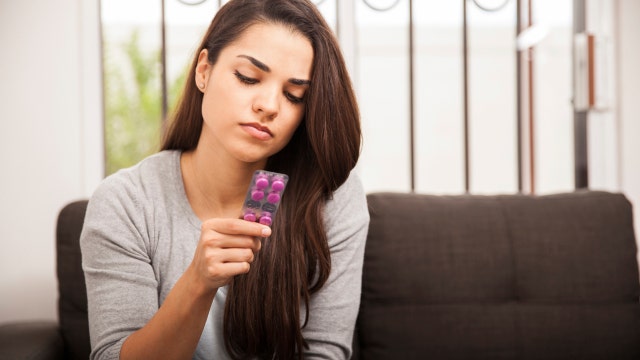What happens when you go off birth control?
Q&A with Dr. Manny: I've been taking birth control pills for over a decade and have recently decided to stop taking them. What happens after you stop taking the pill— should I expect any side effects?
Despite all the new contraceptive methods available like IUDs and hormonal implants, the birth control pill is still the most commonly used form. In fact, the Centers for Disease Control and Prevention (CDC) estimates about 9.6 million women prefer it over other methods.
But what happens to a woman's body when she decides to go off the pill?
We got this question from a viewer:
Dear Dr. Manny,
I've been taking birth control pills for over a decade and have recently decided to stop taking it. What happens after you stop taking the pill, should I expect any side effects?
Thanks,
Rebecca
Whether a woman is thinking about having a baby or is part of the 30 percent of women going pill-free over dissatisfaction, the decision should involve some planning.
Although you can stop taking birth control pills at any time, some doctors recommend that women finish their current pill pack before tossing it away. Quitting in the middle of a pack may throw your cycle off and cause some irregular bleeding or spotting.
Oral contraceptives (birth control pills) contain two female sex hormones, estrogen and progestin. The combinations of these hormones prevent ovulation and make a woman’s cervical mucus thicker to help keep sperm from going through the cervix and finding an egg.
Once a woman stops taking birth control, the synthetic hormones from the pills are usually out of their system within a few days and their periods should return within 4 to 12 weeks.
“It can take a few months for your period to return to normal. In medicine we call this ‘delayed menses’ and should be no cause for concern,” Dr. Alexandra Sowa of the Weill Cornell Medical College in New York told FoxNews.com. “There is a more rare phenomenon called post-pill amenorrhea, in which the periods don’t return, [and] while it takes up to six months to officially receive this diagnosis, I tell my patients to check in with their doctor if their periods have not returned in about three months.”
Another reason a woman may not get her period is pregnancy. Contrary to persistent myths that long-term oral contraceptive use can affect fertility, the ability to get pregnant can return in the first month after going off the pill.
Even though ovulation can return immediately, internal hormones may not return to status quo as quickly.
“Birth control pills do a good job with ‘leveling out’ a woman's hormones that normally fluctuate according to her ovulatory cycle. These fluctuations cause the common problems of PMS— menstrual cramps, menstrual headaches, bloating, and even heavy periods. So, stopping birth control pills may lead to all of these common symptoms,” Dr. Jabal Uffelman, a gynecologist at Transform Womans Care in Ft. Lauderdale, Flo., told FoxNews.com. “In fact, many women are taking birth control pills to control these problems, plus or minus, contraception.”
Other common side effects when coming off the birth control pill can include:
-Acne
-Breast tenderness
-Uterine cramping
-Moodiness
-Improved sexual desire
“Remember that most of the side effects of being on the birth control pill are positive ones— decrease in the risk of ovarian cancer, regular periods, marked improvement of acne, and a decrease in pelvic pain associated with endometriosis,” Dr. Jill Hechtman, an OB/GYN and medical director at Tampa Obstetrics in Brandon, Flo., told FoxNews.com.
Adverse side effects will vary from woman to woman and are typically a permanent problem if they existed before birth control use, but there are medications that can give symptomatic relief.
“Anti-inflammatory meds such as naproxen and mefenamic acid are very helpful,” Uffelman said. “Also, if the patient is not planning to get pregnant and has a reliable birth control method, a testosterone pellet is a very useful therapy to improve mood swings and PMS associated with the menstrual cycle.”
Remember, you should always talk to your doctor before making any changes to your contraception.

